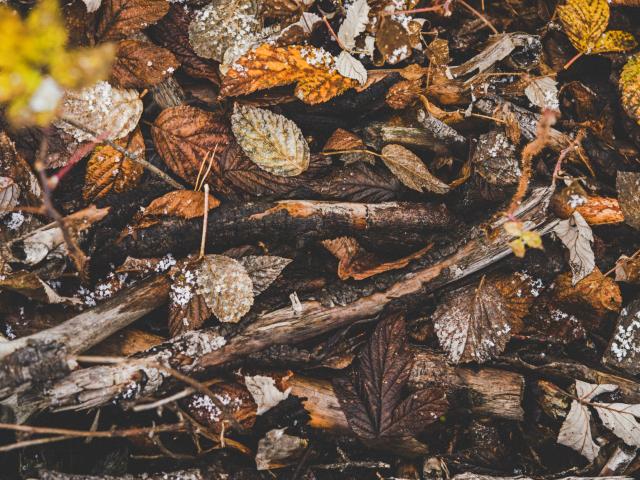Did you notice butterflies and moths choosing to feed on particular nectar plants over the summer?
Butterflies in my Dorset garden seemed very obvious in their preferences - Buddleia and Lavender were definitely the favourites. There was also a bit of segregation, with clouds of Whites on the Lavender and Small Tortoiseshell, Red Admiral and Peacock on the Buddleia.
Summer is now drifting into autumn, with a bountiful supply of fruit on trees and in the hedgerows. Attention in the garden is turned to harvesting and tidying.
Lavender stems should be cut back hard once all the flowers have finished. Buddleia can also be partially cut back after flowering and then cut back further in spring if needed. Herbaceous plants can be dead-headed but not cut down too far so they are protected from winter weather, also, there might be butterfly chrysalises attached to stems.
Nettles don’t need to be trimmed as they will die back over the winter and there may still be some caterpillar activity. Also, Red Admiral chrysalises may be found at the top of the Nettle, within a feeding shelter made by the caterpillar. Red Admiral adults are often abundant in September and well into autumn if the weather is mild. They will feed on fallen fruit such as berries and apples, as will Comma butterflies, so don’t clear up all your windfalls. If the fruit is fermenting you might even witness a tipsy butterfly.

Leaves can be collected from lawns and paths and put into piles in sheltered, quiet places, for use by hibernating hedgehogs. Leaf litter around plants in the borders should be left undisturbed as there could be many moth caterpillars tucked away amongst debris or buried in the soil. Moths which overwinter as pupae here include the Pale Tussock, Sycamore and Hawk-moths such as the Elephant, Privet and Poplar. The Garden Tiger overwinters as a caterpillar.
There are also moths pupating in cocoons on trees and bushes - often on their foodplants such as alders, poplars and willows. Examples include the Alder, Poplar and Sallow Kittens, along with the Puss Moth and Vapourer.
Wildlife appreciates a garden that has nooks and crannies in which to hide, which means you can help by doing less clearing up. Your garden can be a safe haven for hibernating and overwintering creatures.
Happy Gardening,
The BC Towers 'Secret Gardener'


